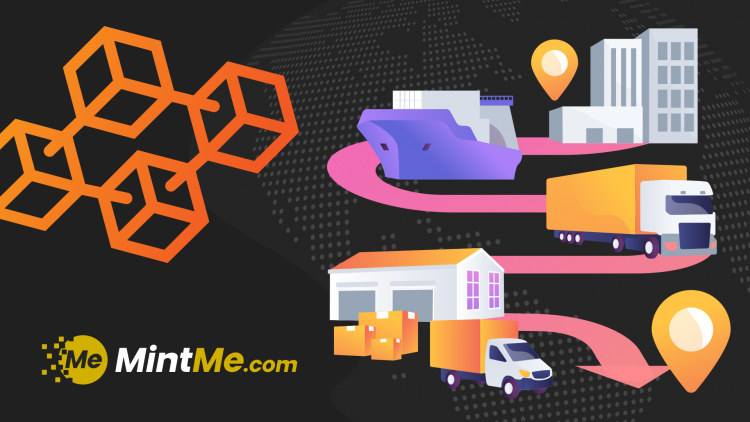Mintme News

Blockchain technology is transforming the way businesses operate, especially in the realm of supply chain transparency. Supply chain management has always been a complex process, as it involves multiple stakeholders, including suppliers, manufacturers, distributors, and customers. The lack of transparency in the supply chain has been a major concern for businesses, leading to issues such as inefficiency, product counterfeiting, and even unethical practices such as human rights violations.
The introduction of blockchain technology, however, has the potential to revolutionize the supply chain and improve transparency. A blockchain is a type of electronic record-keeping system that is distributed and operates without the need for a central authority. The ledger is distributed across a network of computers, making it virtually impossible to alter the records. This level of transparency and security makes blockchain technology an ideal solution for supply chain management.
One of the key benefits of using blockchain in the supply chain is that it provides a single source of truth. All parties involved in the supply chain can access the same information, ensuring that everyone is working with the same data. This eliminates the possibility of conflicting information and helps to increase efficiency in the supply chain.
Another advantage of blockchain technology is that it can help to reduce the risk of product counterfeiting. Counterfeit goods are a major issue in the supply chain, causing harm to both businesses and consumers. With blockchain, each product can be traced back to its origin, allowing companies to verify the authenticity of the product. This helps to ensure that customers are receiving genuine products and protects the reputation of businesses.
In addition, blockchain technology can also improve transparency and accountability in the supply chain, especially in regards to ethical practices. For example, companies can use blockchain to track the source of materials and labor used in the production of goods, allowing them to ensure that they are not contributing to human rights violations or other unethical practices. This level of transparency can help companies to maintain their reputation and build customer trust.
Another use case for blockchain technology in the supply chain is in the area of traceability. Companies can use blockchain to track the journey of goods from the source to the customer, allowing them to quickly identify any issues in the supply chain. This can be particularly useful in the food and beverage industry, where traceability is crucial for food safety and to prevent outbreaks of food-borne illnesses.
Finally, blockchain technology has the potential to increase efficiency in the supply chain by reducing the need for intermediaries. The decentralized nature of blockchain means that transactions can be conducted directly between parties, without the need for intermediaries such as banks or clearinghouses. This can reduce the time and cost associated with intermediaries, leading to a more efficient supply chain.
In conclusion, blockchain technology is revolutionizing the way businesses operate, especially in the realm of supply chain transparency. By providing a single source of truth, reducing the risk of product counterfeiting, improving transparency and accountability, and increasing efficiency, blockchain technology is set to have a significant impact on the supply chain. Companies that adopt blockchain technology will be better equipped to handle the challenges of the supply chain and will be well-positioned for success in the future.
Isaac Vitales